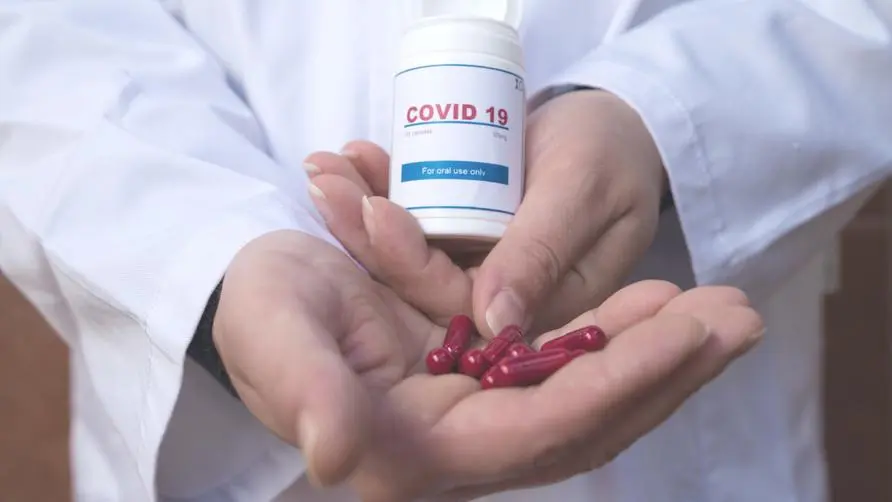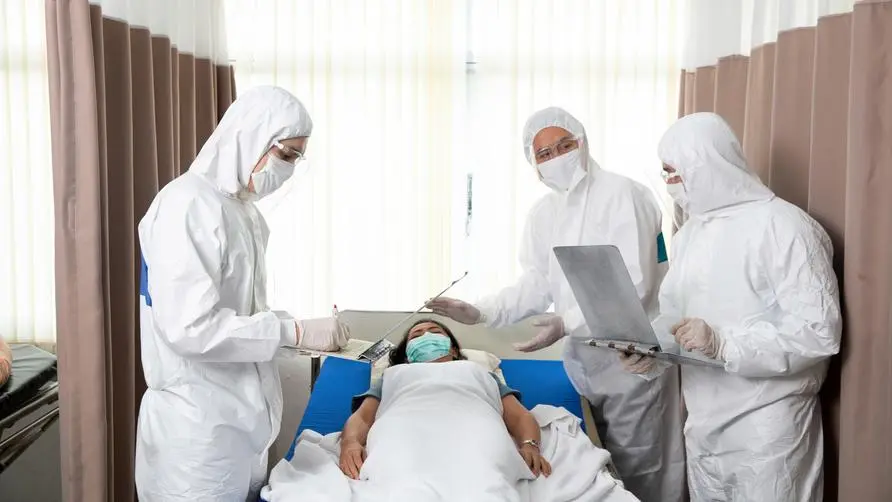COVID-19 oral antiviral drugs are the dawn of the epidemic? Scholar: There may be "drug-resistant" viruses in the future

Oral drugs have just been approved for marketing in various countries, but scientists are eager to find “alternative solutions”?
The first batch of oral COVID-19 drugs “Molnupiravir” purchased by Taiwan arrived at the port yesterday (January 24). As an important resource in the fight against the Omicrom epidemic, can oral antiviral drugs really end the pandemic? Judging from the data, the authoritative medical journal “Nature” reported that the two oral COVID-19 drugs currently approved by various countries, Molnupiravir and Paxlovid, can reduce the number of hospitalizations and deaths from COVID-19 by 30% and 89% respectively. It does have a significant therapeutic effect.
However, two new drugs can effectively reduce severe disease and mortality, but scientists have been non-stop looking for “alternatives.” The scientific community’s move may be a “preparatory measure”, indicating that the new coronavirus may one day develop “drug resistance.”
Are there any flaws in oral medicine for COVID-19? Monotherapy may increase viral resistance
Tim Sheahan, a scholar at the University of North Carolina, mentioned in “Nature” that two drugs, Molnupiravir and Paxlovi, can indeed play a certain role based on clinical data. However, the “monotherapy” adopted by 2 drugs (that is, taking a single drug or prescription to achieve therapeutic effect) may double the risk of drug resistance in the new coronavirus.
“Nature” reported that effective antiviral drugs usually inhibit or attack the “polymerase” and “protease” in viruses, preventing the virus from replicating in large quantities. The mechanism of the Paxlovid drug is to inhibit the main protease in the new coronavirus; Molnupiravir “cheats” the RNA polymerase in the virus and integrates part of the drug into the RNA, making it unable to survive.
However, Luis Schang, a virus expert at Cornell University in the United States, believes that Molnupiravir’s attack mode may not be able to completely eliminate the virus in patients. He believes that a series of RNA errors caused by Molnupiravir may inadvertently make the virus gradually become resistant to drugs. This is why experts prioritize the search for drugs that effectively block RNA polymerase and use them in combination with protease inhibitors such as Paxlovid.
Dr. Schang believes that it may be “unwise” to use Molnupiravir in combination with other oral drugs at this time. He said that the oral drug “Remdesivir” currently undergoing clinical trials may be a potentially better choice. Remdesivir can effectively inhibit RNA protease, but the treatment is relatively expensive and requires intravenous injection of the drug for three consecutive days. Further improvements and optimization of the medication process are needed.
Virus mutations quickly cause drugs to lose their effectiveness? Expert: The arms in the “arsenal” are still insufficient
In addition to Molnupiravir and Paxlovid, various countries have joined the ranks of developing oral drugs for COVID-19. Among them, the protease inhibitor developed in Japan has a similar mechanism to Paxlovid, except that patients only need to take one pill a day; compared with Molnupiravir and Paxlovid, which need to be taken twice a day and are composed of several pills, the drug Compliance is undoubtedly better.
“Nature” pointed out that other potential therapeutic targets include inhibiting the “PL pro” protease and “methyltransferase” in the new coronavirus, which are important tissue protein components that stabilize viral RNA. An American biological company has announced that it will develop oral drugs targeting the PL proprotease in the virus.
Dr. Schang said there is “urgent need” to develop other treatments for the new coronavirus. The mainstream mutant viruses currently circulating around the world, such as Delta and Omicron, can all use drugs to encode new polymerase and protease genes. The warning from the scientific community is that the virus may mutate again in two years. Will the drugs still be effective by then? The answer is probably not optimistic.
“The weapons in the ‘arsenal’ are still insufficient and less than ideal. We must look for more treatments, certainly and broadly, so that in the next pandemic, there will be a wider range of treatment options to choose from.” Dr. Schang said illustrate.
Source:
Further reading:
No more vaccine “boosters”? Pfizer CEO: One “flu shot” a year is enough





